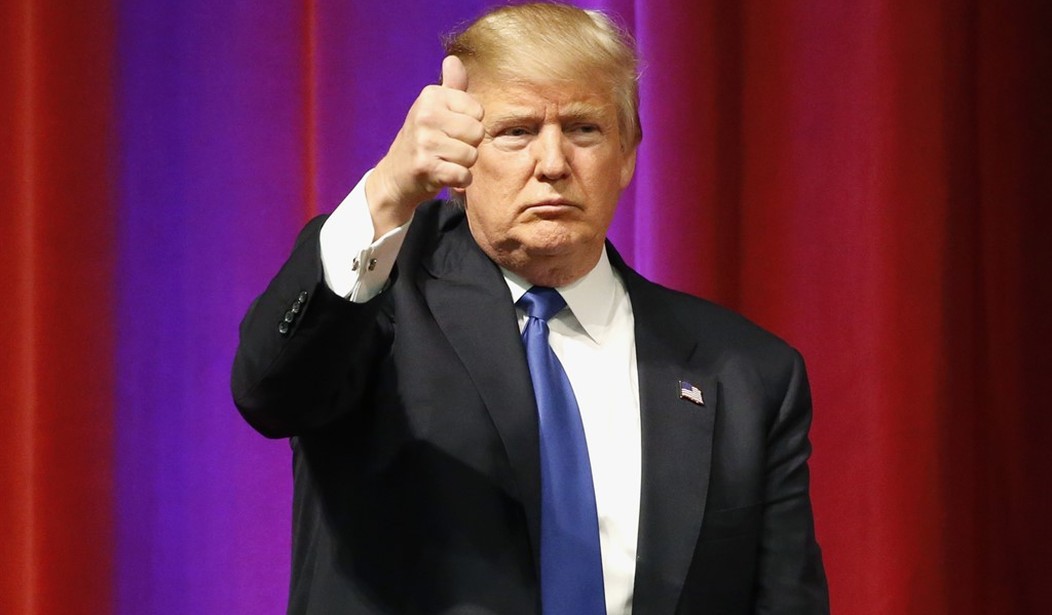Donald Trump has more in common with Andrew Jackson and Teddy Roosevelt than anyone ever imagined, and the implications for Republicans and Democrats are staggering.
Of course, scholars and historians will scoff at such simple comparisons, but the analogies are there. Our first presidents, from Washington onward, were establishment people by any definition. Of power, prestige, and position, those well-born men laid down a brilliant foundation of word and deed, imperfect though it was. As the nation expanded and produced millions of adventurers, tradesmen, and farmers—ordinary people all of them—the stage was set for a commoner’s brand of brash courage and action, also less than perfect, and Andrew Jackson was their man.
Theodore Roosevelt sprang from better beginnings, but was no less, anti-establishment as a Republican than Jackson was as a new Democrat. Serving in a secondary cabinet position under McKinley, Roosevelt resigned to fight in Cuba, gaining national fame in the effort. Yet, the party managers distrusted his naïve, bullish inexperience, crowned as it was by a soaring ego, and sought to pigeonhole him in the vice-presidency with the election of 1900. What the power-brokers couldn’t predict or control was McKinley’s assassination in September 1901.
Just as Jackson was not a new Democrat to be managed by the elite of his day, neither was Roosevelt destined to be a Mark Hanna pawn in his. No matter what might be said of Donald Trump’s sometimes crude behavior, his too plain talk on some topics, or his ad hominem scorch and burn approach, his pure populism marks the Richter shift we are now experiencing.
Recommended
Anyone who argues that Trump is a traditional conservative is a fool, and Trump knows that more than anyone. Hence, his choice not to attend CPAC and troll for support there. That interplay alone should tell one and all that a CPAC dream of larger party control is once again not to be, not because its principles are not important to the nation, but because the populace sees another use for the Republican Party and is content with Trump’s “flexible,” practical conservatism. Trump will be managed by no one, neither the RNC leadership nor organizations like CPAC. Troublesome though that may be to die-hards, much of America is insisting, apparently, that the Republican nominee in 2016 shun iconoclastic, litmus positions satisfying only the conservative intelligentsia, and do whatever it takes to win.
What establishmentarians failed to understand in Jackson’s day, in the Teddy Roosevelt era, and at the dawn of the 21st Century, is that the same, managed, but nonsensical, uncompromising, and edge-hugging approaches from either party will no longer do. For at least two decades, that broad swath of voters we might call middle America—more properly defined not by geography but by work ethic, mores, and devotion to our nation—has been socially torn asunder by progressive themes encouraging all of us to substitute the state for each other, a scheme sweetened by the largesse only a government can lavish.
The middle masses have known some very big things have been wrong in their lives, and they’ve grappled with the disease by gifting themselves with feel goods like electing our first black president and other, anything goes, lifestyle prescriptions. Their pain has not been eased. What spiked America’s fever was Obama’s beguiling promise to take us somewhere, but instead, he trapped us into nowhere, a place where people have become more and more divided, most of all because of the stagnating, sad, and sagging economics of a disappearing middle class. Underneath and all along have been the abrading tectonic plates of marriage, religion, sexual identity, and job availability, and alone amongst so-called conservative candidates, Donald Trump has understood what it all meant.
Unfortunately, for Hillary, most Americans are done with feel goods and want the real goods, as embodied by someone who understands the plight of everyday men and women, and they’re perfectly okay with an articulation of their cynicism and anger in politically incorrect terms. A Donald Trump under either party banner became not only possible, but inevitable.
The millions of new voters brought to the ballot box by the likes of Trump should be seen by the Republican establishment as an opportunity rather than a disaster, but thus far, the GOP powers have fouled up every reasonable scenario for comity and unity. Surprisingly, there are one or two opportunities left to it. Job One is to follow the advice of a wise old Democrat, Tip O’Neill, who reminded us that a smart politician carefully determines the direction of a parade, and runs with all speed to get in front of it. As only a few seem to know, leading the parade is preferable to being trampled by it.
Second, there’s the ticket. Worse than, say, a Trump-Kasich matchup, which IS electable, would be a Cruz-Anybody ticket, which is, by any sensible standard, UNelectable. In that scenario, Rubio’s wonkish abilities might best be used and honed where he is: in the US Senate. Ted Cruz might serve the nation more adroitly filling a SCOTUS vacancy. Tiresome though the argument may be for some, passing the right legislation and managing the constitutional direction of SCOTUS may be the most important tasks of the next administration and Democrats are keenly aware of them. Despite the admonitions of past leadership, Republicans must claim these priorities as their own, or face the fate of Whigs.
So, gang, suck it up, and let the right things happen.
This all calls to mind John Kasich’s recent one-liner: “Better buy yourself a seatbelt,” he said, “and hold on tight. It’s going to be quite a ride.” Only not the way he thought.

























Join the conversation as a VIP Member